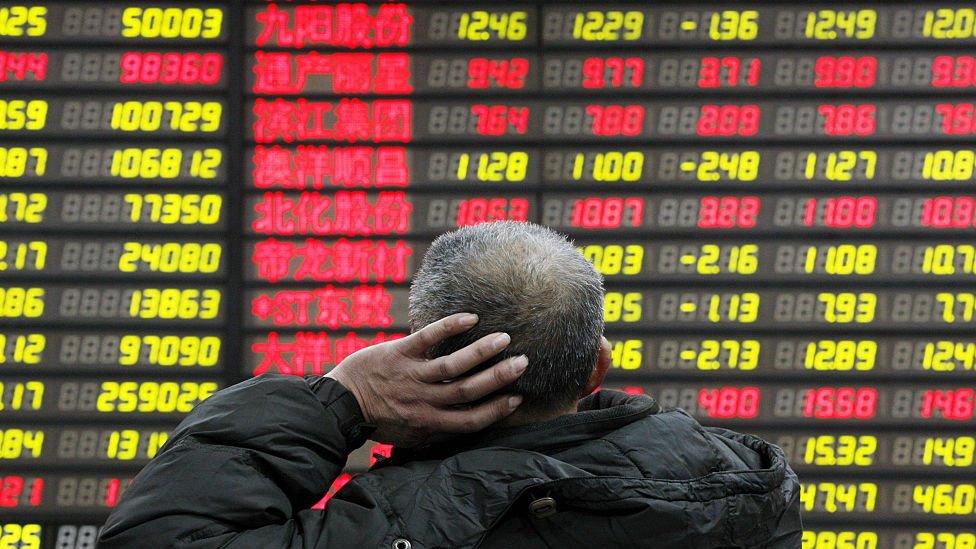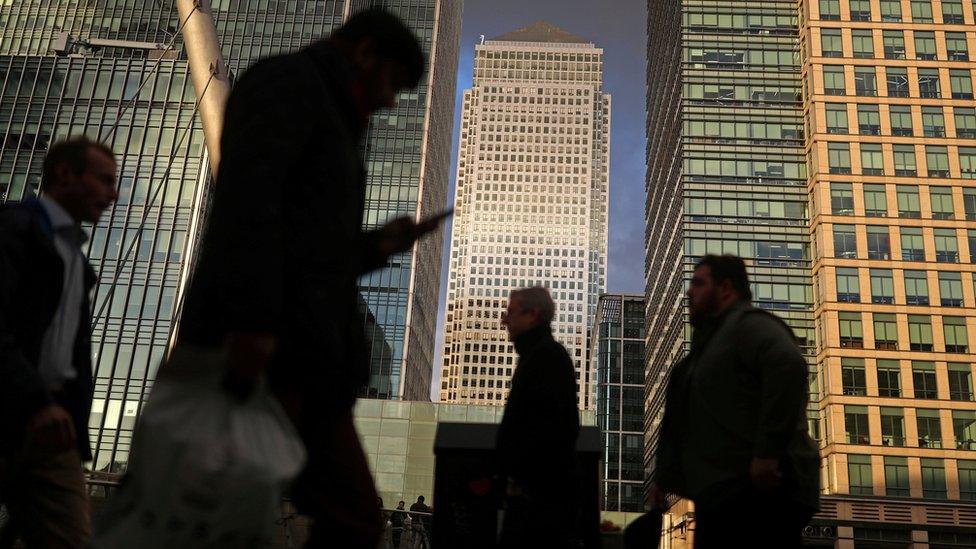Asia stocks drop as slowdown fears rattle investors
- Published

Asia markets joined a global sell-off as fresh worries about trade and the world economy rattled investors.
Japan's Nikkei 225 index closed down 2% and Australia's ASX 200 lost 2.2%.
It followed sharp falls in US and European markets on Wednesday, with the UK's FTSE 100 index sinking 3.2%.
The falls came after the release of weak US economic data and a World Trade Organization (WTO) ruling paving the way for $7.5bn (£6.1bn) in US tariffs on EU goods.
Analysts said these factors had sparked fears over the strength of the global economy.
"There seems to be some cracks forming in some parts of the US economy and also in investor confidence," CMC Market analyst Margaret Yan said.
She said a combination of factors - including soft US jobs and manufacturing reports - added to existing investor worries "in light of deepened fears of a global recession and mounting trade risks".
Those risks include a fresh front in global trade hostilities, between the US and Europe.
America has been given the green light by the WTO to hit a range of EU goods - from aircraft to cheese and olives - with new tariffs.
The move marks the latest chapter in a long-running battle between the US and the EU over illegal subsidies for planemakers Airbus and rival Boeing.
The tariffs are separate to US President Donald Trump's ongoing trade disputes with countries around the world.
Slowdown fears
The stock market falls in Asia follow a weak performance on US and European indexes on Wednesday.
The blue-chip UK FTSE 100 suffered its worst day since January 2016. In Europe, Germany's main index, the Dax, closed 2.8% lower, while France's Cac 40 lost more than 3%.
In the US, the Dow Jones Industrial Average ended trading down 1.9%, marking the second day in a row it has dropped more than 1%.
The S&P 500 fell 1.8% while the tech-heavy Nasdaq gave up 1.6%.
The losses came after one of the most closely-watched US manufacturing figures, the Institute for Supply Management's (ISM) index of factory activity, dropped to its lowest level since June 2009.
Fresh figures on Wednesday showing a slowdown in jobs growth in the private sector in September accelerated concerns over the US economy.
"With sentiment so fragile, the one-two punch from the WTO and [US jobs data] was enough to cremate European stock markets," said Jeffrey Halley, OANDA senior market analyst.
- Published2 October 2019

- Published14 August 2019
